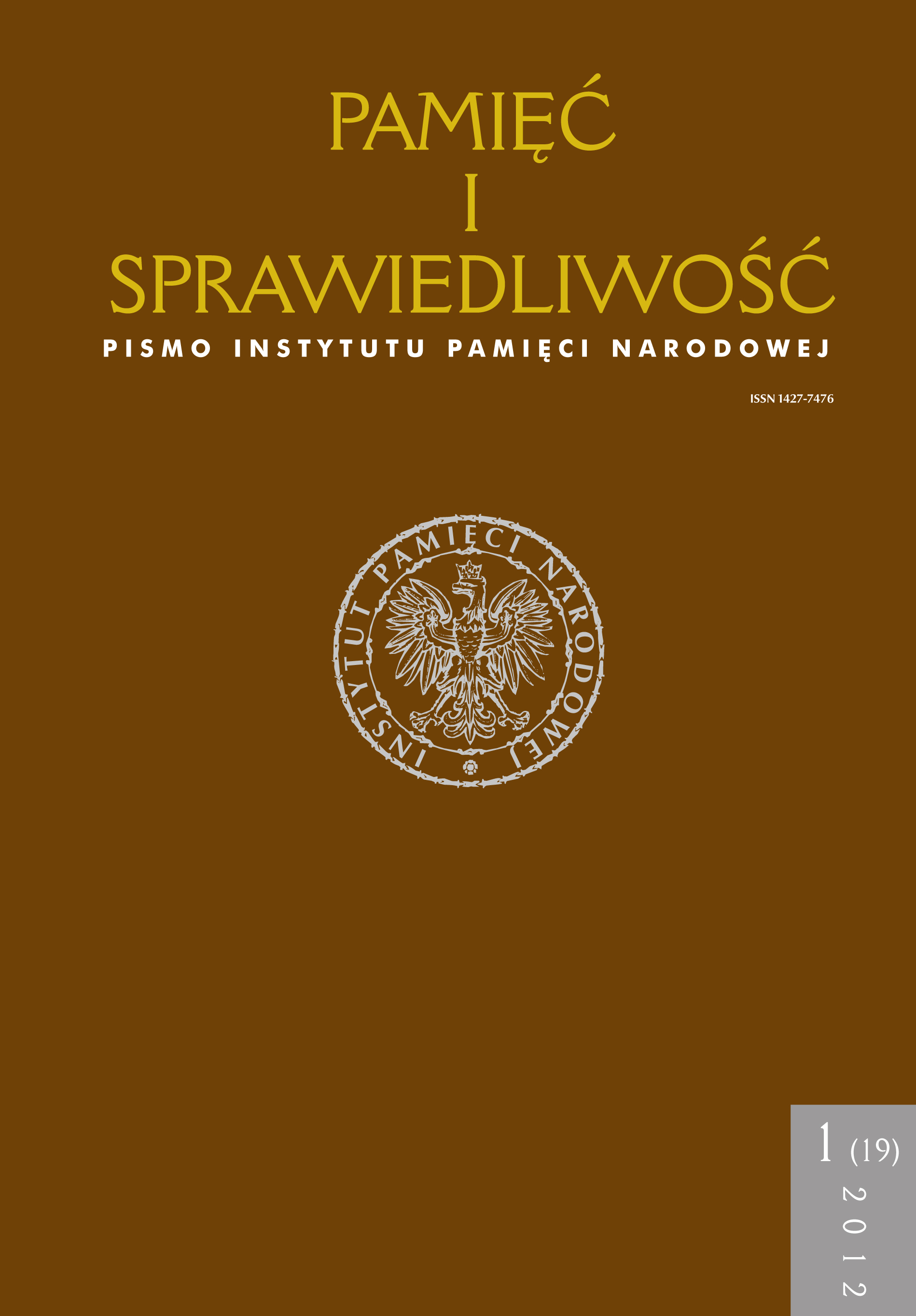Przekształcenia ekonomiczne na Ukrainie Zachodniej w latach 1939–1941
Pamięć i Sprawiedliwość, Bd. 19 Nr. 1 (2012), pages: 477-494
Publication date: 2012-06-30
Abstract
Literaturhinweise
W.L. Warećkyj, Socjalistyczni peretworennia u zachidnych obłastiach URSR (w dowojennyj period), Kyjiw 1960, Torżestwo istorycznoji sprawedływosti. Zakonomirnist´ wozzjednannia zachidnoukrajinśkych zemel w jedynij Ukrajinśkij Radianśkij derżawi, Lwiw 1968, W.L. Warećkyj, Socjalistyczni peretworennia u zachidnych obłastiach URSR (w dowojennyj period M.A. Wyłcan, Sowietskaja deriewnia nakanunie Wielikoj Otieczestwiennoj wojny (1938– –1941 gg.), Moskwa 1970, E.A. Osokina, Za fasadom „stalinskogo izobilija”: Raspriedielenije i rynok w snabżenii nasielenija w gody industrializacyi 1927–1941, Moskwa 1997, G.L. Rubinsztejn, Razwitije wnutrienniej torgowli w SSSR, Moskwa 1964, G. Hryciuk, Polacy we Lwowie 1939–1944. Życie codzienne, Warszawa 2000, P. Tigrid, Ve stínu lípy, „Svědectví” 1971, č. 41 V. Pavlíček, Únor 1948, „Právník” 1968, č. 3, K. Kaplan, Úvahy o nevyhnutelnosti února, „Svědectví” 1978, č. 55, F. Peroutka, Byl Edvard Beneš vinen?, Praha 1993. P. Kosatík, Ferdinand Peroutka – pozdější život (1938–1978), Praha–Litomyšl 2000, A. Svoboda, A. Tučková, V. Svobodová, Jak to bylo v únoru, Praha 1949 ; J. Veselý, Kronika únorových dnů 1948, Praha 1958
Am häufigsten gelesenen Artikel dieser/dieses Autor/in
- Wołodymyr Baran, Wasyl Tokarski, Sądownictwo radzieckie na Wołyniu i w Galicji Wschodniej w latach 1939–1941 , Pamięć i Sprawiedliwość: Bd. 25 Nr. 1 (2015)
- Wołodymyr Baran, Technologia represji politycznych NKWD w latach 1939–1941 , Pamięć i Sprawiedliwość: Bd. 23 Nr. 1 (2014)
- Wołodymyr Baran, Zachodnia Ukraina – początek sowietyzacji (wrzesień–grudzień 1939 roku). Spojrzenie historyka ukraińskiego , Pamięć i Sprawiedliwość: Bd. 18 Nr. 2 (2011)
- Wołodymyr Baran, Radzieckie organy bezpieczeństwa państwowego na Ukrainie: czerwiec–grudzień 1941 roku. Zarys problematyki , Pamięć i Sprawiedliwość: Bd. 30 Nr. 2 (2017)
 Język Polski
Język Polski
 English
English
 Deutsch
Deutsch
 Français (France)
Français (France)
 Italiano
Italiano
 Русский
Русский


 PDF (Język Polski)
PDF (Język Polski)
